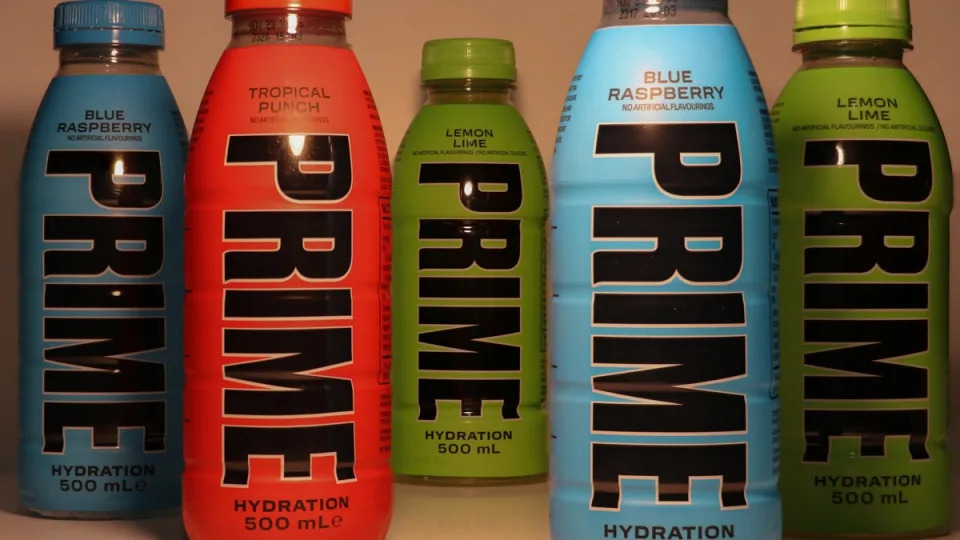LOGAN PAUL'S PRIME BANNED BY AUSSIES
Looks like the Prime drink craze has made its way down under, but Aussie kids won’t be packing it in their school lunches.
Schools across Australia are banning the super-caffeinated drink created by YouTube stars Logan Paul and KSI, citing concerns about the drink's high caffeine content. Prime energy drinks pack twice the legal limit of caffeine per 100 milliliters, making it a no-go for school-aged children. While the drink is not available in stores in Australia, it can still be purchased on resale websites, which has officials concerned that students are getting their hands on it.
Multiple schools in Queensland and Western Australia have recently taken action by issuing warnings to parents and banning Prime drinks. This comes as a response to health industry advice highlighting that the energy drinks contain dangerously high levels of caffeine, especially for children.
In the United States, there may be no ban on caffeine for kids, but that doesn't mean everyone is comfortable with the high levels of caffeine found in energy drinks like Prime, or the sugars found in others like Monster Beverage Corp.
Due to this, there’s been an increase in popularity among sparkling waters and ‘clearn energy’ drinks. Pureboost, for example, is a clean energy drink mix leaving out GMOs, sugar and artificial sweeteners aiming to shake up the $400 billion beverage market. According to their Wefunder investment page, the startup has seen continued traction with over 19 million servings sold.
This comes off the heels of other successful brands in the space. LiquidDeath, a sparkling water brand known for its humorous ‘water in a beer can’ approach, recently raised funds at a $700 million valuation. National Beverage Corp. became a viral sensation for its lacroix brand of sparkling water, and is now valued at nearly $5 billion. White Claw, Truly and others have similarly rocketed to fame with their hard seltzers.
The American Academy of Pediatrics strongly advises against children consuming caffeine. While adults can generally consume caffeine in moderate amounts without significant health risks, caffeine can be especially harmful to children because of their smaller bodies and developing brains.
Consuming too much caffeine can lead to a range of negative side effects for children, including insomnia, nervousness, restlessness, increased heart rate, high blood pressure and digestive problems. These side effects can interfere with a child's ability to focus, concentrate and learn and can also lead to more serious health problems in some cases.
According to Parents.com, the principal of an upper elementary school in New Jersey recently sent an email out to parents expressing concern about students who have consumed energy drinks in the past and have subsequently reported headaches and other symptoms to the nurse's office. While U.S. schools have yet to issue bans, many educators are encouraging parents to exercise caution when it comes to allowing their children to consume these beverages.
Prime boasts a caffeine content of 200 milligrams per 12-ounce can, which is equivalent to the caffeine found in six cans of Coca-Cola, 2½ cans of Red Bull or two cups of coffee.
The Prime drink line comes with a warning that it's not meant for kids. According to its website, PRIME Energy is not recommended for children younger than 18, pregnant or nursing women or people who are sensitive to caffeine. PRIME Hydration and PRIME Hydration+ Sticks are caffeine-free.

Seth Rollins wins at wrestlemania
ReplyDelete